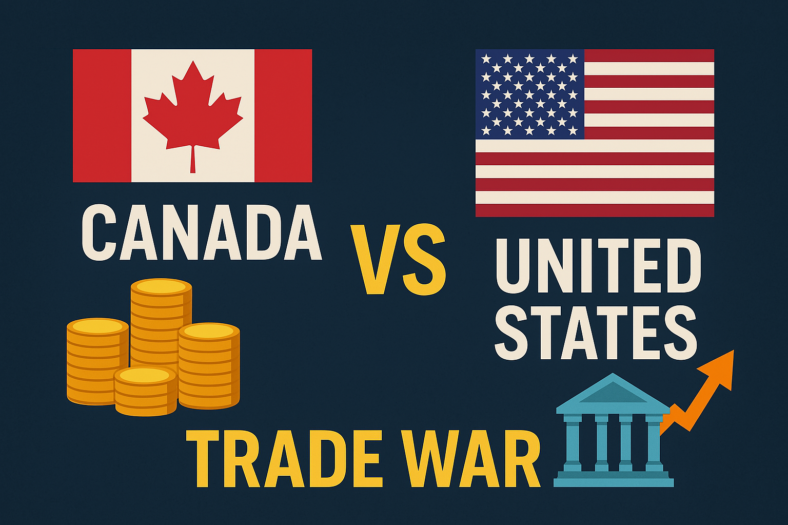Best Car Loans in Canada – Our Top Picks
How to get auto financing with bad credit
Getting a car loan with bad credit in Canada requires careful planning and consideration of various factors. Here’s a detailed step-by-step guide to help you navigate the process:
Know Your Credit Score: Begin by obtaining a copy of your credit report and reviewing your credit score. Understanding where you stand financially will give you a clear picture of the challenges you may face in securing a car loan.
Research Lenders: Not all lenders in Canada offer car loans to individuals with bad credit, so it’s essential to research lenders that specialize in bad credit auto financing. Look for reputable lenders who have experience working with borrowers in similar situations.
Calculate Your Budget: Determine how much you can afford to spend on a car loan each month. Consider factors such as your monthly income, expenses, and other financial obligations. Use online calculators to estimate loan payments based on different interest rates and loan terms.
Save for a Down Payment: While it’s possible to get a car loan with bad credit without a down payment, having one can improve your chances of approval and may result in more favorable loan terms. Aim to save up for a down payment, even if it’s a small percentage of the car’s purchase price.
Shop Around for Loan Options: Don’t settle for the first loan offer you receive. Instead, shop around and compare loan options from multiple lenders. Look for loans with competitive interest rates, manageable terms, and reasonable fees.
Consider Co-Signers or Collateral: If your credit is particularly poor, you may need to explore options such as having a co-signer with good credit or offering collateral to secure the loan. Both of these options can help mitigate the lender’s risk and improve your chances of approval.
Apply for Pre-Approval: Once you’ve identified potential lenders and loan options, consider applying for pre-approval. Pre-approval gives you a clearer understanding of how much you can borrow and the terms you’re likely to qualify for, empowering you during the car shopping process.
Choose the Right Car: When shopping for a car, focus on finding a vehicle that fits within your budget and meets your needs. Avoid high-priced vehicles that may stretch your budget too thin or result in unmanageable loan payments.
Read the Fine Print: Before signing any loan agreements, carefully review the terms and conditions, including the interest rate, loan term, fees, and any additional charges. Make sure you understand your obligations as a borrower and seek clarification on any aspects that are unclear.
Make Timely Payments: Once you’ve secured a car loan, make it a priority to make timely payments each month. Consistently paying your loan on time can help improve your credit score over time and demonstrate responsible financial behavior to future lenders.
By following these steps and being proactive in your approach, you can increase your chances of successfully obtaining a car loan with bad credit in Canada. Remember to stay patient and persistent throughout the process, and don’t hesitate to seek guidance from financial advisors or credit counselors if needed.
How to best compare bad credit car loans
Comparing bad credit car loans requires careful consideration of various factors to ensure you choose the option that best fits your financial situation and needs. Here’s a detailed guide on how to compare bad credit car loans effectively:
Interest Rates: Start by comparing the interest rates offered by different lenders. Interest rates for bad credit car loans are typically higher than those for borrowers with good credit, but they can still vary significantly between lenders. Look for lenders offering competitive rates that are within your budget.
Loan Terms: Evaluate the loan terms offered by each lender, including the duration of the loan (loan term) and any flexibility in repayment options. Longer loan terms may result in lower monthly payments but can also lead to higher overall interest costs. Consider how the loan term aligns with your financial goals and ability to repay the loan.
Fees and Charges: Review the fees and charges associated with each loan option, including origination fees, prepayment penalties, and late payment fees. These additional costs can significantly impact the overall affordability of the loan. Choose a loan with transparent fee structures and minimal additional charges.
Down Payment Requirements: Take note of each lender’s down payment requirements. While some lenders may offer bad credit car loans with no down payment, others may require a certain percentage of the car’s purchase price upfront. Assess whether you can afford the down payment and how it may affect your loan terms.
Loan Amounts: Determine the maximum loan amount each lender is willing to offer based on your creditworthiness and financial situation. Ensure that the loan amount is sufficient to cover the cost of the car you’re interested in purchasing without exceeding your budget.
Repayment Flexibility: Consider whether the lender offers any flexibility in repayment options, such as bi-weekly or monthly payments, as well as the ability to make extra payments without incurring penalties. Flexible repayment options can help you better manage your loan and pay it off more quickly.
Customer Reviews and Reputation: Research each lender’s reputation and read customer reviews to gauge their level of customer satisfaction and reliability. Look for lenders with positive reviews and a track record of providing excellent service to borrowers, especially those with bad credit.
Additional Benefits: Some lenders may offer additional benefits or incentives to attract borrowers, such as discounts for automatic payments or refinancing options. Consider any additional perks offered by each lender and how they may benefit you in the long run.
Credit Reporting Policies: Inquire about each lender’s credit reporting policies and whether they report loan payments to credit bureaus. Timely payments on your car loan can help rebuild your credit over time, so choosing a lender that reports to credit bureaus can be advantageous.
Loan Approval Process: Lastly, consider the ease and efficiency of the loan approval process for each lender. Choose a lender that offers a streamlined application process and quick approval times to expedite your car buying journey.
By carefully comparing these factors, you can make an informed decision when choosing a bad credit car loan that aligns with your financial goals and circumstances. Don’t hesitate to ask questions and seek clarification from lenders to ensure you fully understand the terms and conditions of the loan before making a commitment.
How to improve your chances of being approved for auto financing in Canada
Improving your chances of being approved for a car loan, especially with bad credit, involves taking proactive steps to strengthen your financial profile and demonstrate your creditworthiness to lenders. Here are some detailed tips to help you improve your chances of approval:
Check and Improve Your Credit Score: Start by checking your credit report for any errors or inaccuracies that could be negatively impacting your credit score. Addressing these errors and taking steps to improve your credit score, such as paying down existing debts and making timely bill payments, can increase your chances of loan approval.
Save for a Down Payment: Saving up for a down payment demonstrates financial responsibility and reduces the amount you need to borrow, making you a less risky borrower in the eyes of lenders. Aim to save at least 10-20% of the car’s purchase price as a down payment, if possible.
Consider a Co-Signer: If your credit is particularly poor, consider asking a family member or friend with good credit to co-sign the loan. A co-signer essentially guarantees the loan and can help you secure more favorable loan terms, including lower interest rates and higher loan amounts.
Shop Around for Lenders: Don’t limit yourself to just one lender. Instead, shop around and compare loan options from multiple lenders, including banks, credit unions, online lenders, and dealership financing. Each lender has different criteria for approving loans, so exploring multiple options can increase your chances of finding a favorable offer.
Focus on Affordable Vehicles: Choose a car that fits within your budget and avoid expensive or luxury vehicles that may be out of reach financially. Opting for a more affordable vehicle can increase your chances of loan approval and make it easier to meet your monthly payment obligations.
Provide Proof of Income and Stability: Lenders want assurance that you have a stable source of income to repay the loan. Gather documents such as pay stubs, tax returns, and employment verification letters to demonstrate your income and employment stability. If you’re self-employed or have irregular income, be prepared to provide additional documentation to support your financial stability.
Limit Loan Applications: Avoid submitting multiple loan applications within a short period, as this can negatively impact your credit score and signal desperation to lenders. Instead, research lenders and only apply for loans that you’re confident you qualify for based on your credit profile and financial situation.
Be Honest on Your Application: Provide accurate and truthful information on your loan application, including your income, employment status, and financial obligations. Lying or exaggerating details can lead to loan denial and damage your credibility with lenders.
Demonstrate Stability: Lenders prefer borrowers who demonstrate stability in their finances and personal life. Avoid major financial changes, such as switching jobs or moving to a new city, before applying for a car loan. Stability in your employment and living situation can strengthen your loan application.
Consider Alternative Financing Options: If traditional lenders are unwilling to approve your car loan, explore alternative financing options such as subprime lenders, buy-here-pay-here dealerships, or peer-to-peer lending platforms. While these options may come with higher interest rates, they can provide a pathway to car ownership for individuals with bad credit.
By implementing these tips and taking a proactive approach to improving your financial standing, you can increase your chances of being approved for a car loan, even with bad credit. Remember to carefully review loan terms and negotiate with lenders to ensure you secure the most favorable deal possible given your circumstances.
What is the lowest credit score you can get auto financing with?
The lowest credit score you can get auto financing with varies depending on the lender and your specific financial situation. Generally, most traditional lenders, such as banks and credit unions, prefer borrowers with credit scores in the “good” to “excellent” range, typically defined as 670 or higher. However, there are specialized lenders, known as subprime or bad credit lenders, who are willing to work with borrowers with lower credit scores.
In Canada, for example, some subprime lenders may offer auto financing to individuals with credit scores as low as 500 or even lower. These lenders specialize in providing loans to borrowers with poor credit histories, including those with past bankruptcies, foreclosures, or significant debt.
It’s important to note that while subprime lenders may be more lenient when it comes to credit scores, they often charge higher interest rates and fees to offset the increased risk of lending to borrowers with poor credit. As a result, individuals with lower credit scores may face higher monthly payments and overall loan costs compared to borrowers with better credit.
If you have a low credit score and are in need of auto financing, it’s advisable to shop around and compare offers from multiple lenders, including both traditional and subprime lenders. By exploring all your options, you can find the most favorable loan terms available to you given your credit situation. Additionally, working to improve your credit score over time can help you qualify for better loan terms in the future.
Types of lenders that offer auto financing for bad credit
When seeking auto financing with bad credit, it’s essential to explore various types of lenders that specialize in working with individuals in similar financial situations. Here are the main types of lenders that offer auto financing for bad credit:
Subprime Lenders: Subprime lenders specialize in providing loans to borrowers with less-than-perfect credit scores. These lenders typically have more flexible lending criteria compared to traditional banks and credit unions, making them more willing to work with individuals with bad credit. Subprime lenders often charge higher interest rates and fees to offset the increased risk of lending to borrowers with poor credit.
Special Finance Departments at Dealerships: Many car dealerships have special finance departments or relationships with subprime lenders that cater to customers with bad credit. These departments are equipped to handle the unique needs of individuals with low credit scores and can help facilitate auto financing even for those with poor credit histories. However, borrowers should carefully review loan terms and negotiate to ensure they’re getting the best deal possible.
Online Lenders: Online lenders, including peer-to-peer lending platforms and alternative finance companies, offer auto financing options for individuals with bad credit. These lenders often have streamlined application processes and may provide more personalized loan offers based on your credit profile and financial situation. Borrowers can compare rates and terms from multiple online lenders to find the most competitive option.
Credit Unions: Some credit unions specialize in offering auto loans to members with bad credit. Credit unions are not-for-profit financial institutions owned by their members, which can sometimes result in lower interest rates and more favorable loan terms compared to traditional banks. Additionally, credit unions may be more willing to work with borrowers on an individual basis to find solutions that meet their needs.
Finance Companies: Finance companies, also known as captive finance companies, are affiliated with specific car manufacturers and offer financing options to customers purchasing vehicles from affiliated dealerships. These companies may have programs in place to assist customers with bad credit, including special financing promotions and incentives. However, borrowers should carefully review loan terms and compare offers from other lenders to ensure they’re getting the best deal.
Buy-Here-Pay-Here Dealerships: Buy-here-pay-here dealerships offer in-house financing options to customers, including those with bad credit. These dealerships typically finance the vehicles themselves rather than working with external lenders. While buy-here-pay-here dealerships may provide financing options to individuals with poor credit, borrowers should be aware that interest rates and fees are often higher compared to other lenders, and repayment terms may be less favorable.
When exploring auto financing options for bad credit, it’s essential to research and compare offers from multiple lenders to find the most competitive rates and terms available given your financial situation. Additionally, borrowers should carefully review loan contracts and consider consulting with a financial advisor or credit counselor to ensure they fully understand their obligations before signing any agreements.
Common fees and costs with auto financing for bad credit
When obtaining auto financing with bad credit, borrowers may encounter various fees and costs associated with the loan. Understanding these fees upfront can help borrowers make informed decisions and avoid surprises during the loan process. Here are some common fees and costs to be aware of:
Interest Rates: Borrowers with bad credit often face higher interest rates compared to those with good credit. The interest rate, expressed as an annual percentage rate (APR), represents the cost of borrowing and directly affects the total amount of interest paid over the life of the loan. Higher interest rates can significantly increase the overall cost of financing.
Origination Fees: Some lenders charge origination fees, also known as loan processing fees, to cover the cost of processing the loan application. Origination fees are typically calculated as a percentage of the loan amount and are added to the total loan balance at the time of funding.
Down Payment: While not a fee per se, lenders may require borrowers to make a down payment upfront, especially for individuals with bad credit. A down payment reduces the amount financed and demonstrates the borrower’s commitment to the loan, potentially improving approval chances and loan terms. The size of the down payment varies depending on the lender and the borrower’s financial situation.
Documentation Fees: Documentation fees, also known as doc fees or processing fees, cover the cost of preparing and processing loan documents. These fees are typically charged by dealerships and are added to the overall cost of financing. Documentation fees can vary widely between dealerships and lenders.
Extended Warranty and Insurance: Some lenders may offer extended warranty or insurance products as part of the financing package. While these options can provide additional protection and peace of mind, they also come with added costs. Borrowers should carefully consider whether these products are necessary and compare prices from different providers.
Late Payment Fees: Late payment fees are charged when borrowers fail to make their loan payments on time. These fees can vary depending on the lender and may be calculated as a percentage of the overdue amount or a flat fee. Borrowers should strive to make timely payments to avoid incurring late fees and damaging their credit.
Prepayment Penalties: Prepayment penalties are fees charged to borrowers who pay off their loans before the end of the loan term. While not all lenders impose prepayment penalties, borrowers should carefully review loan agreements to ensure they understand any potential penalties for early repayment.
Credit Insurance: Some lenders may offer credit insurance, such as credit life insurance or credit disability insurance, to protect against unforeseen circumstances that may affect the borrower’s ability to repay the loan. While credit insurance can provide added security, it also comes with additional costs that borrowers should consider.
Vehicle Registration and Title Fees: Borrowers are responsible for paying vehicle registration and title fees to transfer ownership of the vehicle into their name. These fees vary depending on the state or province and are typically paid to the relevant government agency.
Processing Fees for Subprime Loans: Subprime lenders may charge additional processing fees or administrative fees to offset the increased risk of lending to borrowers with bad credit. These fees can vary depending on the lender and may be included in the overall cost of financing.
It’s essential for borrowers to carefully review loan agreements and ask questions about any fees or costs associated with auto financing before agreeing to the terms. By understanding these fees upfront, borrowers can make informed decisions and avoid potential financial pitfalls down the road.
Alternatives to bad credit car loans
When traditional auto financing options are limited due to bad credit, there are several alternative avenues to explore. Here are some alternatives to consider:
Subprime Lenders: Subprime lenders specialize in providing loans to individuals with less-than-perfect credit. While interest rates may be higher compared to prime lenders, subprime lenders are often more willing to work with borrowers with bad credit histories.
Credit Unions: Credit unions are not-for-profit financial institutions owned by their members. Some credit unions offer special programs for members with bad credit, including auto loans with more lenient lending criteria and competitive interest rates.
Online Lenders: Online lenders, including peer-to-peer lending platforms and alternative finance companies, offer convenient access to auto financing options for individuals with bad credit. These lenders often have streamlined application processes and may provide personalized loan offers based on your credit profile.
Dealership Financing: Many car dealerships have relationships with lenders that specialize in bad credit auto financing. Dealership financing departments can help facilitate loans for customers with poor credit, sometimes offering incentives or promotions to attract buyers.
Buy-Here-Pay-Here Dealerships: Buy-here-pay-here dealerships offer in-house financing options directly to customers, including those with bad credit. While interest rates and fees may be higher compared to other lenders, buy-here-pay-here dealerships provide a convenient option for individuals struggling to obtain financing elsewhere.
Co-Signer: If your credit is too poor to qualify for a loan on your own, consider asking a family member or friend with good credit to co-sign the loan. A co-signer essentially guarantees the loan and can help you secure more favorable loan terms, including lower interest rates and higher loan amounts.
Personal Loans: While not specifically designed for car purchases, personal loans can be used to finance a vehicle, especially for individuals with bad credit. Personal loans may have higher interest rates compared to auto loans, but they offer more flexibility in terms of loan amount and repayment terms.
Credit Repair Services: If your credit score is the primary barrier to obtaining financing, consider working with a reputable credit repair service to improve your credit profile. Credit repair services can help identify and dispute errors on your credit report, negotiate with creditors, and provide guidance on rebuilding your credit.
Down Payment Assistance Programs: Some organizations and government agencies offer down payment assistance programs to help individuals with bad credit purchase a vehicle. These programs provide financial assistance for the down payment, reducing the amount you need to finance and potentially improving your chances of loan approval.
Vehicle Leasing: Leasing a vehicle can be an alternative to traditional financing, especially for individuals with bad credit. Leasing typically requires lower upfront costs and may have lower monthly payments compared to purchasing. However, leasing also comes with limitations, such as mileage restrictions and maintenance requirements.
When exploring alternative auto financing options for bad credit, it’s essential to carefully review loan terms, compare offers from multiple lenders, and consider the long-term financial implications. Additionally, borrowers should be cautious of predatory lenders and scams targeting individuals with bad credit, and seek advice from reputable financial professionals if needed.
Do bad credit car loans help build credit?
Yes, bad credit car loans can help build credit if managed responsibly. Here’s how:
Timely Payments: Making on-time payments towards your bad credit car loan demonstrates responsible borrowing behavior to credit bureaus. Payment history is the most significant factor in determining your credit score, so consistently making payments on schedule can have a positive impact on your credit.
Credit Mix: Having a diverse mix of credit accounts, such as installment loans (like car loans) and revolving credit (like credit cards), can positively affect your credit score. Adding a bad credit car loan to your credit profile can improve your credit mix and potentially boost your score.
Credit Utilization: Auto loans are installment loans with fixed monthly payments and fixed terms. Unlike credit cards, where your credit utilization ratio fluctuates based on your balance, installment loans have a predetermined balance that decreases over time as you make payments. Maintaining a low credit utilization ratio can positively impact your credit score.
Length of Credit History: The length of your credit history is another important factor in determining your credit score. By taking out a bad credit car loan and making regular payments over time, you’re establishing a positive credit history, which can improve your credit score in the long run.
However, it’s important to note that bad credit car loans can also have potential downsides:
Higher Interest Rates: Borrowers with bad credit often face higher interest rates on their car loans compared to those with good credit. While this can make monthly payments more expensive, it also means paying more in interest over the life of the loan.
Risk of Default: Defaulting on a bad credit car loan can have severe consequences for your credit score. Missed or late payments can lead to negative marks on your credit report, further damaging your credit and making it harder to qualify for loans in the future.
Repossession: If you default on your bad credit car loan, the lender may repossess the vehicle. A repossession stays on your credit report for several years and can have a significant negative impact on your credit score.
Overall, while bad credit car loans can be a tool for rebuilding credit, it’s essential to approach them with caution and make sure you can afford the payments before taking on additional debt. Making timely payments and managing the loan responsibly can help improve your credit over time.
FAQs about auto financing for bad credit in Canada
Yes, it’s possible to get a car loan with bad credit in Canada. While traditional lenders may have strict criteria, there are specialized lenders, subprime lenders, and dealership financing options available for individuals with poor credit histories.
The credit score required to qualify for a car loan in Canada varies depending on the lender and the type of financing. While traditional lenders may prefer borrowers with good to excellent credit scores (typically 670 or higher), subprime lenders may offer auto financing options to individuals with credit scores as low as 500.
To improve your chances of getting approved for a car loan with bad credit, consider saving for a down payment, researching lenders that specialize in bad credit financing, improving your credit score, providing proof of income and stability, and considering a co-signer or collateral to strengthen your application.
Yes, obtaining a car loan with bad credit and making timely payments can have a positive impact on your credit score over time. On the other hand, defaulting on the loan or making late payments can have a negative effect on your credit score.
Interest rates for bad credit auto financing in Canada are typically higher compared to loans for borrowers with good credit. The specific interest rate you’ll qualify for depends on factors such as your credit score, income, loan term, and the lender’s policies.
Yes, borrowers may encounter various fees associated with bad credit car loans in Canada, including origination fees, documentation fees, late payment fees, and prepayment penalties. It’s important to review the terms and conditions of the loan agreement carefully to understand any fees upfront.
Yes, refinancing your car loan to get better terms is possible if your credit improves. With a higher credit score, you may qualify for lower interest rates and better loan terms, potentially saving you money over the life of the loan. However, not all lenders offer refinancing options, so it’s important to shop around and compare offers.
If you’re unable to make your car loan payments, it’s essential to contact your lender as soon as possible to discuss your options. Depending on the situation, your lender may offer alternatives such as deferment, loan modification, or refinancing. Defaulting on the loan can lead to repossession of the vehicle and negative consequences for your credit.
In conclusion, auto financing for individuals with bad credit in Canada presents both challenges and opportunities. While poor credit may limit access to traditional financing options, there are specialized lenders and alternative financing avenues available to help individuals secure the vehicle they need. Throughout this guide, we’ve explored various aspects of auto financing for bad credit in Canada, including the importance of understanding credit scores, exploring alternative lenders, and taking proactive steps to improve approval chances.
Despite facing higher interest rates and potential fees, borrowers with bad credit can still access auto financing by researching lenders, saving for a down payment, and demonstrating financial stability. Making timely payments on a bad credit car loan can also contribute to rebuilding credit over time, opening doors to better financing options in the future.
However, it’s crucial for borrowers to approach auto financing with caution and to carefully review loan terms to ensure they understand the costs and obligations involved. Additionally, seeking guidance from financial professionals and credit counselors can provide valuable insights and support throughout the process.
Ultimately, while bad credit may pose challenges, it doesn’t have to be a barrier to owning a vehicle in Canada. By educating themselves, exploring options, and taking proactive steps, individuals with bad credit can navigate the auto financing landscape and achieve their goals of vehicle ownership while rebuilding their financial standing.




















